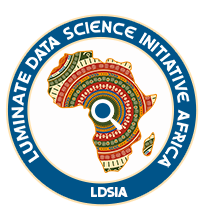
What is Data Science?
Reading Time: 3 minutes Have you ever wondered how companies like Netflix seem to magically know what TV shows and movies you’re going to love? Well, it’s not magic – it’s data science! In the simplest terms, data science is all about using data to find patterns and insights that can help us make better decisions. It’s like a treasure hunt, except instead of gold coins, you’re searching for information that can help you understand your customers, your business, or even the world around you. Data science is a field that involves using data to gain insights and make informed decisions. It combines elements of computer science, statistics, and domain expertise to extract meaningful information from large and complex datasets. Data scientists use a variety of tools and techniques to clean, process, analyze, and visualize data in order to identify patterns, trends, and relationships. At its core, data science is about discovering and communicating meaningful insights that can inform decision-making and improve outcomes. It has the potential to transform industries and tackle some of the world’s biggest challenges, from healthcare and climate change to education and economic development. But data science is not just for experts – it is a tool that anyone can use to gain insights into their own work and life. For example, data analysis can help you understand your personal finances, track your fitness goals, or make better decisions as a small business owner. So, whether you’re a data scientist or simply someone interested in using data to make better decisions, there is a place for you in the world of data science. With a little bit of curiosity and a willingness to learn, anyone can unlock the power of data to make a positive impact in their own life and the world around them. Here a few examples of the many ways in which data science is being used to improve people’s lives in Africa and around the world. Agriculture: Data science can help farmers increase crop yields, manage soil health, and forecast weather patterns. For example, the African Agricultural Technology Foundation uses data science to develop crop varieties that are resistant to diseases and pests, and to optimize fertilizer and water use. Healthcare: Data science can improve public health by analyzing trends in disease outbreaks and identifying risk factors. In South Africa, researchers used data science to identify hotspots for tuberculosis and to predict which patients were most likely to have a poor outcome. Education: Data science can help educators personalize learning and measure student progress. In Kenya, the Bridge International Academies use data science to track student performance and identify areas where individual students need extra help. Finance: Data science can help financial institutions detect fraud, assess risk, and personalize services for customers. In Nigeria, startups like Paga and Flutterwave are using data science to make financial services more accessible and affordable for millions of people. Energy: Data science can help improve access to energy by predicting demand and optimizing the distribution of resources. In Tanzania, the World Bank is using data science to analyze energy consumption patterns and identify areas where investments in renewable energy can have the greatest impact. Transportation: Data science can help optimize transportation systems, reduce congestion, and improve safety. In Uganda, the SafeBoda app uses data science to match riders with the nearest and safest motorcycle taxi drivers. Wildlife conservation: Data science can help protect endangered species and preserve natural habitats. In South Africa, researchers are using data science to track the movements of rhinos and to identify areas where poaching is most likely to occur. Disaster response: Data science can help governments and humanitarian organizations respond to natural disasters and other emergencies. In Mozambique, researchers used data science to analyze satellite imagery and identify areas that were most affected by flooding in the wake of Cyclone Idai. So really, data science is all about using data to make better decisions and solve problems. And who doesn’t want to do that? With data science, you can take a bunch of seemingly random information and turn it into something that’s actually useful. It’s like turning a pile of ingredients into a delicious meal – it takes some work, but the end result is worth it.
Read More



